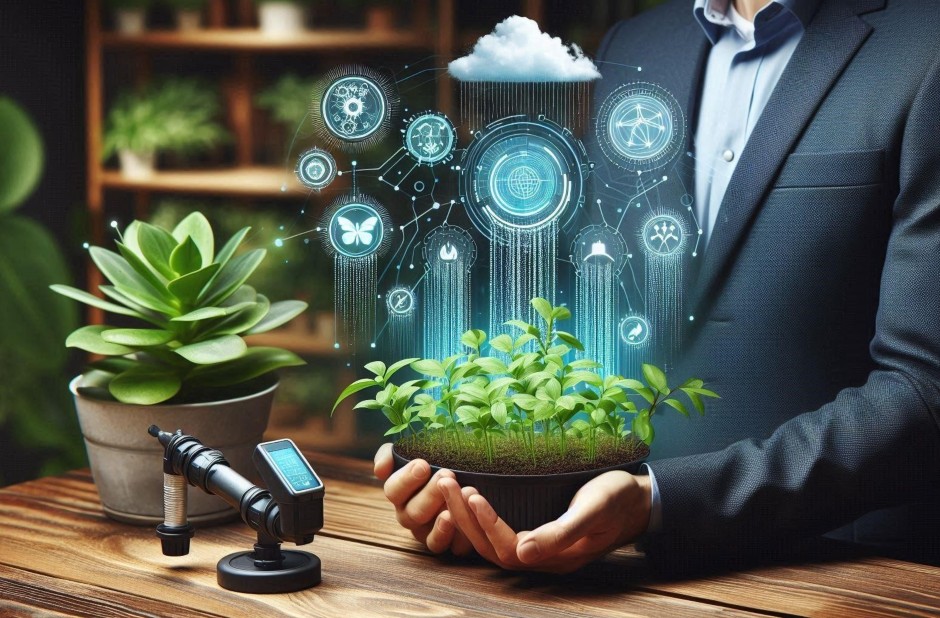In recent years, there has been a significant advancement in the field of Artificial Intelligence (AI) and Augmented Reality (AR). These technologies have become increasingly popular and have the potential to enhance virtual experiences in various fields such as gaming, education, healthcare, and...
Smart Irrigation System Determines Plant Needs

With the growing importance of sustainable practices in agriculture and gardening, effective methods of controlling how resources like water are distributed have become a key focus. The integration of advanced technologies allows for precise monitoring and automatic adjustments that reduce waste and ensure plants thrive with the right amount of hydration.
These modern approaches are designed to consider various environmental factors such as soil moisture, weather conditions, and the specific requirements of each area. By responding to these variables in real-time, the approach offers a solution that not only promotes healthy growth but also contributes to significant savings in both water consumption and energy use.
Environmental impact is one of the main reasons for the shift towards these automated techniques. With less reliance on manual intervention, human error is minimized, and resources are allocated more wisely, helping to preserve them for future generations.
How Smart Irrigation Enhances Water Efficiency
Efficient use of water is crucial in modern agriculture and gardening. By utilizing advanced technologies, the process of hydrating crops or greenery can be finely tuned to meet precise requirements, minimizing excess usage. This ensures that resources are conserved while still providing adequate hydration for growth.
Through real-time data collection and analysis, these methods are able to assess various environmental factors such as soil moisture levels and atmospheric conditions. The ability to adjust accordingly to these changes means that only the necessary amount of liquid is applied, reducing waste and improving sustainability.
The integration of automatic adjustments based on these insights leads to a more reliable approach to managing hydration. As a result, it not only helps to avoid overuse but also enhances overall efficiency, making it a highly effective solution for conserving valuable resources while supporting healthy development.

Benefits of Automated Plant Water Management
Automating the process of managing hydration for crops and greenery offers a range of significant advantages. These technologies enable precise control over when and how much moisture is delivered, leading to enhanced efficiency and sustainability. By reducing manual labor and human error, these solutions can deliver consistent results, improving the overall health of vegetation.
Improved Resource Conservation
- Minimizes water waste by applying just the right amount at the right time.
- Reduces environmental impact by using fewer resources for optimal results.
- Decreases reliance on manual labor, allowing for a more sustainable approach.
Better Growth and Health
- Ensures that each area receives the ideal amount of moisture for healthy development.
- Prevents overhydration or dehydration, both of which can negatively affect growth.
- Promotes stronger root systems by providing consistent moisture levels.
Technologies Behind Smart Irrigation Systems
Advanced technologies play a crucial role in ensuring efficient water management by constantly adjusting to changing environmental conditions. These innovations allow for real-time monitoring and precise delivery of hydration, contributing to the overall health of vegetation while minimizing waste. By utilizing sensors, automated controllers, and data analysis tools, these systems can respond dynamically to various factors that affect hydration requirements.
Sensor Technology
Sensors are the core components that provide valuable insights into soil moisture, temperature, and other environmental conditions. These devices collect data continuously, allowing the system to understand the specific needs of the area being monitored. Soil moisture sensors are particularly important, as they detect the level of moisture in the soil, ensuring that only the necessary amount is added.
Automation and Control
Automation is a key feature that enables these solutions to adjust in real-time. Controllers interpret the data from the sensors and make decisions about when to activate or deactivate hydration. This automatic adjustment reduces human intervention, ensures consistent application, and helps conserve resources by preventing overuse.



